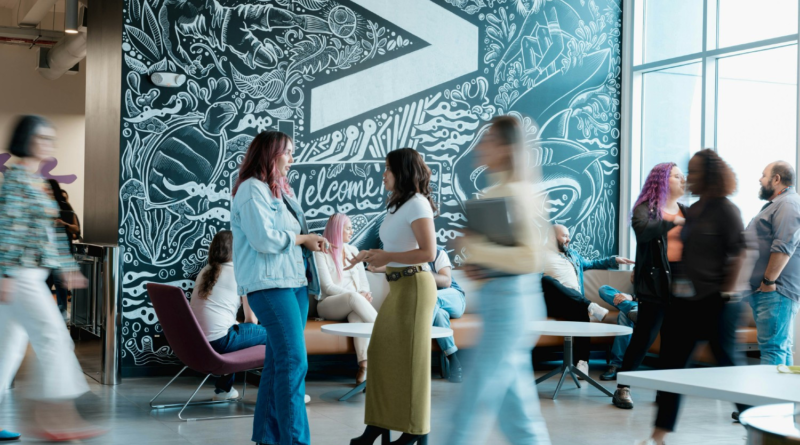Confidence in leaders fosters culture of innovation at the World’s Best Workplaces
For global companies, the ability to innovate and adapt amid the rise of generative AI is a crucial challenge facing leaders in every industry.
While a 2024 report from Accenture found that 81% of companies see AI as one of the main levers to reinvent themselves, it doesn’t mean that workers are on the same page as their leaders. Only 51% of employees are excited to use AI to improve their work and only 45% believe their company will use AI in a way that benefits them, according to a Great Place To Work® global survey of nearly 43,000 employees.
To overcome employee reluctance and low trust, companies where employees report a high level of confidence in their leaders will have the advantage. When employees have confidence in their leaders, they are much more likely to be innovating and growing.
Great Place To Work found that when employees had a lot of confidence in their leaders, they were four times more likely to say they had a lot of meaningful opportunities to participate in innovation.
Experiences that build trust
The experiences that drive employees to report higher levels of confidence in their leaders are the same experiences that set the Fortune World’s Best Workplaces™ apart from the typical workplace.
Depending on where in the world you live, different experiences impact the likelihood that you have confidence in your leaders.

Courtesy of Great Place To Work®
In Asia, what made the biggest difference was whether employees felt their leaders cared about them as more than just an employee. When they felt leaders cared about their life goals and aspirations outside of work, as well as their contributions to the organization, they were 42% more likely to have high levels confidence in their leaders.
In Europe, having ethical managers that lived up to core company values made employees 107% more likely to have confidence in their leaders. In Latin America, clear expectations from management made employees 60% more likely to have confidence. In the U.S. and Canada, fair promotions practices made employees 59% more likely to have confidence in leaders. Fair promotions also made employees in Africa 67% more likely to have confidence in leaders.
For all of these experiences, companies on the World’s Best Workplaces list dramatically outperform the typical workplace.

Courtesy of Great Place To Work®
At companies on the list, 55% more employees said managers care about them beyond their value as an employee of the organization compared to a typical workplace and 48% more said leaders embodied their company’s values.
At the typical workplace, less than half of employees said promotions are fairly awarded, which the World’s Best Workplaces beat by 60%.
When employees are involved in innovation, AI excitement grows
The experiences that lead employees to participate in innovation are invaluable for companies trying to quickly adapt to new technology like generative AI.
When employees say they receive training on AI, they are more likely to be excited to use AI tools. Simply introducing employees to the risks and benefits of AI means they are three times more likely to be excited to use AI in their role.
Great workplaces create a culture of innovation that offers learning opportunities open to all employees and encourages the entire workforce to contribute ideas to improve the performance and success of the company. When employees say they have a lot of meaningful opportunities to innovate, they are 82% more likely to be excited to use AI.
Employee excitement could make a huge difference in the amount of friction companies face when adopting new AI tools. Companies on the World’s Best list offer clear examples of how to get employees involved with AI.
At Salesforce, No. 10 on the list, employees can access a variety of learning modules on its Trailhead platform, including session like “AI for Business,” “Responsible Creation of AI,” and “AI for Customer Service.” The company also has created an internal challenge for the company to have “one million AI conversations” with customers, highlighting the importance of having every employee become knowledgeable and engaged on the topic.
At ServiceNow, No. 21 on the list, employees can use a learning platform — “frED” — to learn about a range of topics, including AI. Built on the ServiceNow platform and powered by AI insights, nearly half a dozen teams were directly involved in developing the platform, offering key feedback to ensure a successful launch. More than 65% of employees used frED within the first four weeks after launch.
AI and ESG
Projects that engage employees to innovate and develop their AI acumen can also have a powerful impact on environmental, social, and governance (ESG) perception in the company.
Great Place To Work found that when employees report being trained to use AI tools, they were 47% more likely to feel that their company made decisions that benefited the environment and 27% more likely to say their company’s decisions benefitted society.
At Accenture, No. 6 on the list, employees are invited to participate broadly in innovation events and challenges like its “Sustainability Innovation Challenge.” Employees from across the organization competed with entries like Mangrovera.ai, a tool developed by a team in India that helps researchers restore and protect mangrove forests with AI pattern recognition software.
Trusted leaders are the ingredient that unlocks innovation and drives business performance — they are a crucial piece of the puzzle on AI adoption and the future of work.

Ted Kitterman is a content manager at Great Place To Work.




